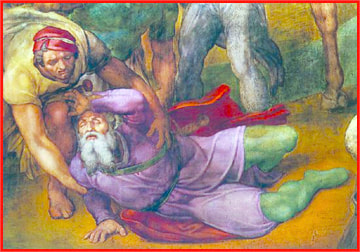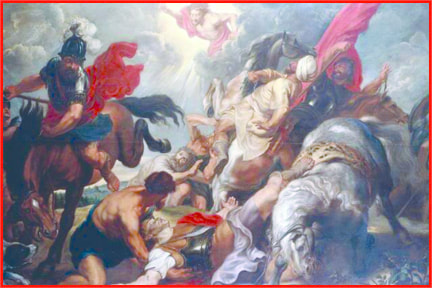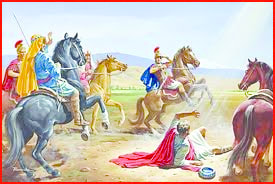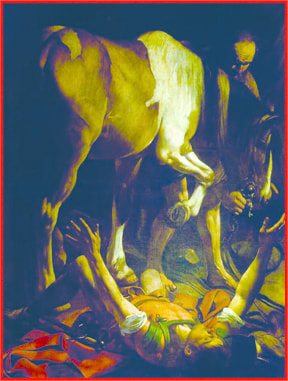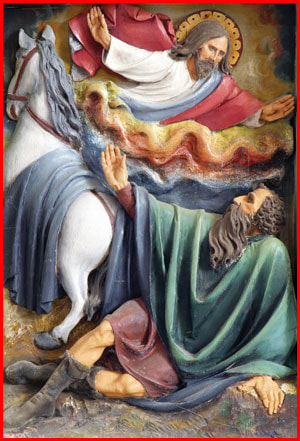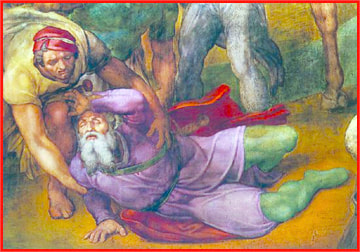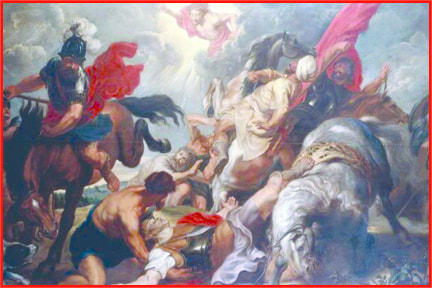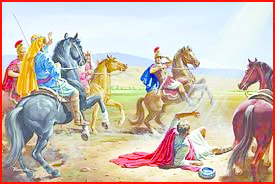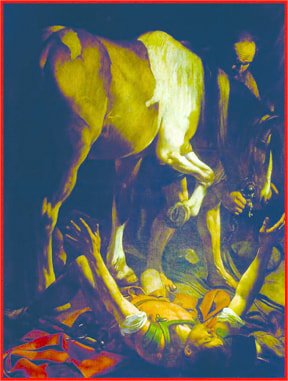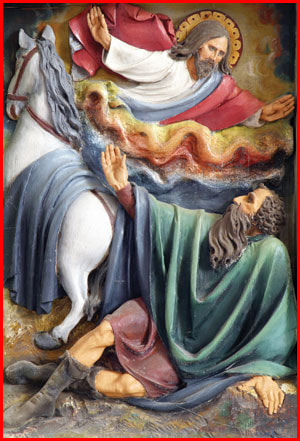| Devotion to Our Lady |
|
- Homepage
-
Daily Thoughts
- 2023 October Daily Thoughts
- Daily Thoughts Lent 2020
- Daily Thoughts for Advent 2019
- Daily Thoughts for October 2019
- Daily Thoughts for September 2019
- Daily Thoughts for August 2019
- Daily Thoughts for July
- Daily Thoughts for June
- Daily Thoughts for Easter 2019
- Daily Thoughts for Lent 2019
- Daily Thoughts for Christmas
- Daily Thoughts Easter 2022
- Sacred Heart
- Holy Ghost
-
Spiritual Life
- Holy Mass Explained
- First Friday Devotions
- First Saturday Devotions
- The Mercy of God
- Vocations
- The Path Everyone Must Walk >
- Gift of Failure
- Halloween or Hell-O-Ween?
- Ignatian Spiritual Exercises >
- Meditation is Soul-Saving
- Spiritual Communion
- Miraculous Medal
- Enrollment in Miraculous Medal
- St. Benedict Medal
- Holy Water
- Advice on Prayer
- Your Daily Mary
-
Prayers
- September Devotions
- Seven Sorrows of Our Lady
-
Novenas
>
- NV-Help of Christians
- NV-Nativity of Our Lady
- NV-Seven Sorrows
- NV- Sorrowful Heart
- NV-Pope St Pius X
- NV-La Salette
- NV-St Michael Archangel
- NV-Immaculate Heart
- NV-Assumption
- NV-Novena for Fathers
- NV-Novena for Your Mother
- NV-St Raphael Archangel
- NV-Souls in Purgatory
- NV-All Saints Day
- NV-Christ the King
- NV-Divine Motherhood
- NV-Guardian Angels
- NV-Rosary
- NV-Mirac Med
- NV- Imm Conc
- NV - Guadalupe
- NV - Nativity of Jesus
- NV-Epiphany
- NV-OL Good Success
- NV-Lourdes
- NV-St Patrick
- NV-St Joseph
- NV-Annunciation
- NV-St Louis de Montfort
- NV-OL Good Counsel
- NV-Last Supper
- NV-Passion
- NV-Pentecost
- NV-Ascension
- NV-Sacred Heart
- NV-Sacred Heart & Perpetual Help
- NV-Corpus Christi
- NV-OL of Perpetual Help
- NV-Queenship BVM
- NV-OL of Mount Carmel
- NV-St Mary Magdalen
- NV- Im Hrt
- August Devotions to IHM
- Immaculate Heart of Mary
- Litany of Dependence
- Prayers to St Mary Magdalen
- Prayers in Times of Sickness Disease & Danger
- Holy Souls in Purgatory
- Meditations on the Litany of Our Lady
- Special Feast Days
- Prayers to Mary (Mon-Sun)
- Litanies to Our Lady >
- Various & Special Needs
- Our Lady of the Rosary
- Our Lady of Mt. Carmel
- Our Lady of Perpetual Help
- Our Lady of Guadalupe
- Other titles of Our Lady
-
Rosary
- Downloads
- Consecration
- Easter Season
-
Holy Week
- Last Seven Words of Jesus >
- Characters of Passion >
- The Last Days of Christ
- Before Palm Sunday
- Palm Sunday
- Monday in Holy Week
- Tuesday in Holy Week
- Wednesday in Holy Week
- Holy Thursday (Last Supper)
- Holy Thursday (Agony & Arrest)
- Night Vigil with Christ
- Good Friday (Pilate & Herod)
- Good Friday (Way of Cross & Crucifixion)
- Saturday in Holy Week
-
Lent
- Ideas for Lent
- Daily Lenten Planner
- Daily Lenten Liturgy
- From Cold to Hot
- Lent with Aquinas
- Lent with Dom Gueranger
- Virtues for Lent
- History of Penance
- How Expensive is Sin?
- Confession of Sins
- Letter to Friends of the Cross
- Sermons for Lent
- Stations of the Cross >
- Lenten Prayers
- 7 Penitential Psalms
- Lenten Psalms SUN
- Lenten Psalms MON
- Lenten Psalms TUE
- Lenten Psalms WED
- Lenten Psalms THU
- Lenten Psalms FRI
- Lenten Psalms SAT
- Lenten Laughs
- Septuagesima
-
Christmas
- Epiphany Explained
- Suggestions for Christmas
- Food For Thought
- Christmas with Aquinas
- Christmas with Dom Gueranger
- Christmas Prayers
- Candles & Candlemas
- Christmas Sermons
- Christmas Prayers SUN
- Christmas Prayers MON
- Christmas Prayers TUE
- Christmas Prayers WED
- Christmas Prayers THU
- Christmas Prayers FRI
- Christmas Prayers SAT
- Twelve Days of Christmas >
-
Advent Journey
- Purgatory
- Christ the King
- Legion of Mary
- Scapular
-
Saints
-
Martyrs for the Faith
>
- Your Daily Martyr >
- All 365 Days of Martyrs
- Cristeros
- St Valentine & Valentine's Day
- Martyrs--Thomas Becket
- Martyrs--John the Apostle
- Holy Machabees
- Age of Martyrdom
- Carmelites of Compiegne
- Martyrs--Peter & Paul
- Martyrs--John the Baptist
- Martyrs--Andrew
- Martyrs--James the Great
- Martyrs--North American
- Martyrs--Seven Holy Sleepers
- Martyrs--Afra
- School of Martyrdom
- Martyrs--Christina
- Desert Saints >
- Saints for Sinners >
- Saints of Mary >
- History of All Saints Day
-
Martyrs for the Faith
>
- Precious Blood
- Synod 2023
-
Catechism
- Catechism Lesson 1
- Catechism Lesson 2
- Catechism Lesson 3
- Catechism Lesson 4
- Catechism Lesson 5
- Catechism Lesson 6
- Catechism Lesson 7
- Catechism Lesson 8
- Catechism Lesson 9
- Catechism Lesson 10
- Catechism Lesson 11
- Catechism Lesson 12
- Catechism Lesson 13
- Catechism Lesson 14
- Catechism Lesson 15
- Catechism Lesson 16
- Catechism Lesson 17
- Catechism Lesson 18
- Catechism Lesson 19
- Catechism Lesson 20
- Catechism Lesson 21
- Catechism Lesson 22
- Bible Study
-
Calendar
- Miracles
- Apparitions
- Shrines
- Prophecies
- Angels Homepage
- Hell
-
Church Crisis
- Conspiracy Theories
- Amazon Synod 2019 >
- Liberalism & Modernism
- Modernism--Encyclical Pascendi
- Modernism & Children
- Modernism--Documents
- The Francis Pages
- Church Enemies on Francis
- Francis Quotes
- Amoris Laetitia Critique
- Danger of Ignorance (Pius X)
- Restore all In Christ (Pius X)
- Catholic Action (Pius X)
- Another TITANIC Disaster?
- The "Errors of Russia"
- CRISIS PRAYERS
- Election Novena 2024
- The Anger Room
- War Zone
- Life of Mary
- Spiritual Gym
- Stupidity
- Coronavirus and Catholicism
- History & Facts
- Books
- Catholic Family
- Children
- Daily Quiz
-
Novena Church & Pope
- Day 01 Church-Pope Novena
- Day 02 Church-Pope Novena
- Day 03 Church-Pope Novena
- Day 04 Church-Pope Novena
- Day 05 Church-Pope Novena
- Day 06 Church-Pope Novena
- Day 07 Church-Pope Novena
- Day 08 Church-Pope Novena
- Day 09 Church-Pope Novena
- Day 10 Church-Pope Novena
- Day 11 Church-Pope Novena
- Day 12 Church-Pope Novena
- Day 13 Church-Pope Novena
- Day 14 Church-Pope Novena
- Day 15 Church-Pope Novena
- Day 16 Church-Pope Novena
- Day 17 Church-Pope Novena
- Day 18 Church-Pope Novena
- Day 19 Church-Pope Novena
- Day 20 Church-Pope Novena
- Day 21 Church-Pope Novena
- Day 22 Church-Pope Novena
- Day 23 Church-Pope Novena
- Day 24 Church-Pope Novena
- Day 25 Church-Pope Novena
- Day 26 Church-Pope Novena
- Day 27 Church-Pope Novena
- Day 28 Church-Pope Novena
- Day 29 Church-Pope Novena
- Day 30 Church-Pope Novena
- Day 31 Church-Pope Novena
- Day 32 Church-Pope Novena
- Day 33 Church-Pope Novena
- Day 34 Church-Pope Novena
- Day 35 Church-Pope Novena
- Day 36 Church-Pope Novena
- Day 37 Church-Pope Novena
- Day 38 Church-Pope Novena
- Day 39 Church-Pope Novena
- Day 40 Church-Pope Novena
- Day 41 Church-Pope Novena
- Day 42 Church-Pope Novena
- Day 43 Church-Pope Novena
- Day 44 Church-Pope Novena
- Day 45 Church-Pope Novena
- Day 46 Church-Pope Novena
- Day 47 Church-Pope Novena
- Day 48 Church-Pope Novena
- Day 49 Church-Pope Novena
- Day 50 Church-Pope Novena
- Day 51 Church-Pope Novena
- Day 52 Church-Pope Novena
- Day 53 Church-Pope Novena
- Day 54 Church-Pope Novena
- Penance Novena
- Daily WeAtheR Forecast
THE CONVERSION OF ST. PAUL
Feastday January 25th
Feastday January 25th
CLICK ON THE NAME OF THE SAINT YOU WISH TO VIEW
(not all links are activated at this time)
THE ROMAN MARTYROLOGY FOR EACH MONTH OF THE YEAR
| January | February | March | April | May | June | July | August | September | October | November | December | All 365 Days on One Page |
MARTYRED SAINTS
| Your Daily Martyr | The Age of Martyrdom (20th & 21st centuries) | The School of Martyrdom | St. Peter the Apostle | St. Paul of Tarsus | St. James the Great |
| St. Andrew | St. John the Baptist | The North American Martyrs | St. Christina | St. Afra | The Seven Holy Sleepers | The Cristeros of Mexico |
SAINTS OF MARY
| St. Louis-Marie de Montfort | St. Dominic | St. John Eudes | St. Maximilian Kolbe | St. Bernard | St. Alphonsus Liguori | St. Ephrem |
| St. Catherine Laboure | St. Bernadette | St. Bridget | St. Catherine of Siena | Pope St. Pius X |
DESERT SAINTS
| Saints of the Desert | St. Paul the Hermit | St. Anthony of Egypt | Desert Father Wisdom |
SAINTS FOR SINNERS
| St. Paul of Tarsus | St. Augustine | St. Mary Magdalen | Dismas the Good Thief |
(not all links are activated at this time)
THE ROMAN MARTYROLOGY FOR EACH MONTH OF THE YEAR
| January | February | March | April | May | June | July | August | September | October | November | December | All 365 Days on One Page |
MARTYRED SAINTS
| Your Daily Martyr | The Age of Martyrdom (20th & 21st centuries) | The School of Martyrdom | St. Peter the Apostle | St. Paul of Tarsus | St. James the Great |
| St. Andrew | St. John the Baptist | The North American Martyrs | St. Christina | St. Afra | The Seven Holy Sleepers | The Cristeros of Mexico |
SAINTS OF MARY
| St. Louis-Marie de Montfort | St. Dominic | St. John Eudes | St. Maximilian Kolbe | St. Bernard | St. Alphonsus Liguori | St. Ephrem |
| St. Catherine Laboure | St. Bernadette | St. Bridget | St. Catherine of Siena | Pope St. Pius X |
DESERT SAINTS
| Saints of the Desert | St. Paul the Hermit | St. Anthony of Egypt | Desert Father Wisdom |
SAINTS FOR SINNERS
| St. Paul of Tarsus | St. Augustine | St. Mary Magdalen | Dismas the Good Thief |
THE CONVERSION OF ST. PAUL
This article is currently being written. Sections will be posted as they are completed. Please check back later.
This article is currently being written. Sections will be posted as they are completed. Please check back later.
|
FROM SAUL TO PAUL
What Holy Scripture Tells Us
There are several places in Holy Scripture that deal with St. Paul (or Saul as he was called before his conversion). Let us first of all have a look at what they say. First of all, in chapter 9 of the Acts of the Apostles, we read: “And Saul, as yet breathing out threatenings and slaughter against the disciples of the Lord, went to the high priest, and asked of him letters to Damascus, to the synagogues: that if he found any men and women of this way, he might bring them bound to Jerusalem. “And as he went on his journey, it came to pass that he drew nigh to Damascus; and suddenly a light from heaven shined round about him. And falling on the ground, he heard a voice saying to him: ‘Saul! Saul! Why persecutest thou Me?’ Saul said: ‘Who art Thou, Lord?’ And he answered: ‘I am Jesus whom thou persecutes! It is hard for thee to kick against the goad!’ And he, trembling and astonished, said: ‘Lord, what wilt Thou have me to do?’ And the Lord said to him: ‘Arise, and go into the city, and there it shall be told thee what thou must do!’ “Now the men who went in company with him, stood amazed, hearing indeed a voice, but seeing no man. And Saul arose from the ground; and when his eyes were opened, he saw nothing. But they leading him by the hands, brought him to Damascus. [9] And he was there three days, without sight, and he did neither eat nor drink. “Now there was a certain disciple at Damascus, named Ananias. And the Lord said to him in a vision: ‘Ananias!’ And he said: ‘Behold I am here, Lord!’ And the Lord said to him: ‘Arise, and go into the street that is called Strait, and seek in the house of Judas, one named Saul of Tarsus. For behold he prayeth!’ And Ananias saw a man named Ananias coming in, and putting his hands upon him, that he might receive his sight. But Ananias answered: ‘Lord, I have heard by many of this man, how much evil he hath done to thy saints in Jerusalem. And here he hath authority from the chief priests to bind all that invoke Thy Name!’ And the Lord said to him: ‘Go thy way! For this man is to me a vessel of election, to carry My Name before the Gentiles, and kings, and the children of Israel! For I will show him how great things he must suffer for My Name’s sake!’ “And Ananias went his way, and entered into the house. And laying his hands upon him, he said: ‘Brother Saul, the Lord Jesus hath sent me, He that appeared to thee in the way as thou camest; that thou mayest receive thy sight, and be filled with the Holy Ghost!’ And immediately there fell from his eyes as it were scales, and he received his sight; and rising up, he was baptized. And when he had taken meat, he was strengthened. And he was with the disciples that were at Damascus, for some days. “And immediately he preached Jesus in the synagogues, that He is the Son of God. And all that heard him, were astonished, and said: ‘Is not this he who persecuted in Jerusalem those that called upon this Name: and came here for that intent, that he might carry them bound to the chief priests?’ But Saul increased much more in strength, and confounded the Jews who dwelt at Damascus, affirming that this is the Christ. “And when many days were passed, the Jews consulted together to kill him. But their laying in wait was made known to Saul. And they watched the gates also day and night, that they might kill him. But the disciples taking him in the night, conveyed him away by the wall, letting him down in a basket. “And when he was come into Jerusalem, he tried to join himself to the disciples; and they all were afraid of him, not believing that he was a disciple. But Barnabas took him, and brought him to the Apostles, and told them how he had seen the Lord, and that He had spoken to him; and how in Damascus he had dealt confidently in the Name of Jesus. “And he was with them coming in and going out in Jerusalem, and dealing confidently in the name of the Lord. He spoke also to the Gentiles, and disputed with the Greeks; but they sought to kill him. Which when the brethren had known, they brought him down to Caesarea, and sent him away to Tarsus.” (Acts 9:1-20). St. Paul’s Personal Account of His Conversion In various places in the New Testament, St. Paul speaks of his past life, his persecution of the Church and of his conversion to the Faith, also recounting the tremendous sufferings he underwent after his conversion. “You have heard of my conversation in time past in the Jews' religion: how that, beyond measure, I persecuted the church of God, and wasted it. And I made progress in the Jews’ religion above many of my equals in my own nation, being more abundantly zealous for the traditions of my fathers” (Galatians 1:13-14). “I indeed did formerly think, that I ought to do many things contrary to the name of Jesus of Nazareth. Which also I did at Jerusalem, and many of the saints did I shut up in prison, having received authority of the chief priests: and when they were put to death, I brought the sentence. And oftentimes punishing them, in every synagogue, I compelled them to blaspheme: and being yet more mad against them, I persecuted them even unto foreign cities. Whereupon when I was going to Damascus with authority and permission of the chief priest. At midday, I saw, in the way, a light from heaven above the brightness of the sun, shining round about me, and them that were in company with me. And when we were all fallen down on the ground, I heard a voice speaking to me in the Hebrew tongue: ‘Saul! Saul!’ Why persecutest thou Me? It is hard for thee to kick against the goad!’ And I said: ‘Who art Thou, Lord?’ And the Lord answered: ‘I am Jesus whom thou persecutest! But rise up, and stand upon thy feet! For to this end have I appeared to thee, that I may make thee a minister and a witness of those things which thou hast seen, and of those things wherein I will appear to thee, delivering thee from the people, and from the nations, unto which now I send thee: to open their eyes, that they may be converted from darkness to light, and from the power of Satan to God, that they may receive forgiveness of sins, and a lot among the saints, by the Faith that is in Me!’” (Acts 26:9-18). In the 22nd chapter of the Acts of the Apostles, we can read St. Paul’s personal account of his conversion on the road to Damascus: “Men, brethren, and fathers, hear ye the account which I now give unto you! … I am a Jew, born at Tarsus in Cilicia, but brought up in this city, at the feet of Gamaliel, taught according to the truth of the law of the fathers, zealous for the law, as also all you are this day―who persecuted this way unto death, binding and delivering into prisons both men and women. As the high priest doth bear me witness, and all the ancients, from whom also receiving letters to the brethren, I went to Damascus, that I might bring them bound from thence to Jerusalem to be punished. “And it came to pass, as I was going, and drawing nigh to Damascus at midday, that suddenly from heaven there shone round about me a great light: and falling on the ground, I heard a voice saying to me: ‘Saul! Saul! Why persecutest thou Me?’ And I answered: ‘Who art thou, Lord?’ And He said to me: ‘I am Jesus of Nazareth, whom thou persecutes!’ And they that were with me, saw indeed the light, but they heard not the voice of him that spoke with me. And I said: ‘What shall I do, Lord?’ And the Lord said to me: ‘Arise, and go to Damascus; and there it shall be told thee of all things that thou must do!’ “And whereas I did not see for the brightness of that light, being led by the hand by my companions, I came to Damascus. And one Ananias, a man according to the law, having testimony of all the Jews who dwelt there, coming to me, and standing by me, said to me: ‘Brother Saul, look up!’ And I the same hour looked upon him. But he said: ‘The God of our fathers hath preordained thee that thou shouldst know His will, and see the Just One, and shouldst hear the voice from His mouth. For thou shalt be his witness to all men, of those things which thou hast seen and heard. And now why tarriest thou? Rise up, and be baptized, and wash away thy sins, invoking His Name!’” Our Lord is True to His Word and Makes Paul Suffer Paul had persecuted Christians—now it Paul that would be persecuted. The persecutor becomes the persecuted. There is a lesson for us there! It is quite simply the fulfilment of Holy Scripture, which warns: “For with what judgment you judge, you shall be judged: and with what measure you give, it shall be measured to you again” (Matthew 7:2). “In what measure you shall give, it shall be measured to you again, and more shall be given to you!” (Mark 4:24). “For with the same measure that you shall give to others, it shall be measured to you again” (Luke 6:38). In speaking of Paul to Ananias, Our Lord foretold that Paul would have to suffer much: “I will show him how great things he must suffer for My Name’s sake!” (Acts 9:16). Later, St. Paul’s own words show the truth of that prophecy: “I am more; in many more labors, in prisons more frequently, in stripes above measure, in deaths often. Of the Jews five times did I receive forty stripes, save one. Thrice was I beaten with rods, once I was stoned, thrice I suffered shipwreck, a night and a day I was in the depth of the sea. In journeying often, in perils of waters, in perils of robbers, in perils from my own nation, in perils from the Gentiles, in perils in the city, in perils in the wilderness, in perils in the sea, in perils from false brethren. In labor and painfulness, in much watchings, in hunger and thirst, in fastings often, in cold and nakedness. Besides those things which are without: there is my daily instance, the solicitude for all the churches!” (2 Corinthians 11:23-28). St. John Chrysostom on St. Paul In his homily on St. Paul of Tarsus, a fellow and later saint, St. John Chrysostom states: “Paul, more than anyone else, has shown us what man really is, and in what our nobility consists, and of what virtue this particular animal is capable. Each day he aimed ever higher; each day he rose up with greater ardor and faced with new eagerness the dangers that threatened him. He summed up his attitude in the words: I forget what is behind me and push on to what lies ahead [Philippians 4:13]. When he saw death imminent, he bade others share his joy: Rejoice and be glad with me! [cf. Philippians 2:18]. And when danger, injustice and abuse threatened, he said: I am content with weakness, mistreatment and persecution [cf .2 Corinthians 12:10]. These he called the weapons of righteousness, thus telling us that he derived immense profit from them. “Thus, amid the traps set for him by his enemies, with exultant heart he turned their every attack into a victory for himself; constantly beaten, abused and cursed, he boasted of it as though he were celebrating a triumphal procession and taking trophies home, and offered thanks to God for it all: Thanks be to God who is always victorious in us! [cf. 1 Corinthians 15:57]. This is why he was far more eager for the shameful abuse that his zeal in preaching brought upon him than we are for the most pleasing honors, more eager for death than we are for life, for poverty than we are for wealth; he yearned for toil far more than others yearn for rest after toil. The one thing he feared, indeed dreaded, was to offend God; nothing else could sway him. Therefore, the only thing he really wanted was always to please God. “The most important thing of all to him, however, was that he knew himself to be loved by Christ. Enjoying this love, he considered himself happier than anyone else; were he without it, it would be no satisfaction to be the friend of principalities and powers. He preferred to be thus loved and be the least of all, or even to be among the damned, than to be without that love and be among the great and honored. “To be separated from that love was, in his eyes, the greatest and most extraordinary of torments; the pain of that loss would alone have been hell, and endless, unbearable torture. “So too, in being loved by Christ he thought of himself as possessing life, the world, the angels, present and future, the kingdom, the promise and countless blessings. Apart from that love nothing saddened or delighted him; for nothing earthly did he regard as bitter or sweet. “Paul set no store by the things that fill our visible world, any more than a man sets value on the withered grass of the field. As for tyrannical rulers or the people enraged against him, he paid them no more heed than gnats. “Death itself and pain and whatever torments might come were but child’s play to him, provided that thereby he might bear some burden for the sake of Christ.” (Homily of St. John Chrysostom on St. Paul). A Few Thoughts Saul, which is Paul’s given name, was born into a Jewish family in Tarsus (Turkey) around the year 8 AD. He was also a Roman citizen, a fact that would play a large role later in his life. Schooled as a Pharisee in the famous school of Gamaliel, he was a tent maker by trade, but was most noted for his hatred of Christians. He believed the teachings of Jesus violated Mosaic Law and zealously harassed, and even jailed, anyone who followed those teachings. The first Scriptural mention of Saul is found in Acts 7:58, as he is a bystander watching his fellow Jews stone St. Stephen to death. An aggressive persecutor of Christians in Jerusalem, Saul sought and received permission from the high priest to proceed to Damascus for the purpose of imprisoning more followers of Christ. Most Christians know the story of what happened on the Damascus road: the bright light that knocked Saul down, the voice of Jesus, Saul’s blindness and immediate response to the calling of Christ. In the manner of the first Apostles who, when beckoned by Christ, gave up their lifestyles to follow him, Saul too doesn’t hesitate. He says yes, just as the Blessed Mother said yes. Blinded from his encounter with Jesus, he allowed himself to be led into Damascus where he was baptized, after which he set out to spread the Gospel of Jesus. Paul would repeat the story of his conversion again and again throughout his life, including to the different magistrates and kings who judged his activities. The book of Acts, in three places, tells the story of Saul’s experience on the Damascus road. The Impact of His Conversion Saul’s sudden change confused those around him, because he was known as one who hated Christians, who went about seeking them out to eliminate those individuals he genuinely considered as breaking Jewish law. Suddenly he was transformed, from despising the followers of Jesus, into fervently espousing the Gospel of that same Jesus. No one could have anticipated this conversion; it is one of the great miracles of mankind. Even in his day, many could not believe what had happened. After his baptism, Saul, who would be called Paul in the 13th chapter of the Acts of the Apostles, went to the desert of Arabia to pray and contemplate his calling. He then returned to Damascus and into the synagogue, where he attested to the divinity of Jesus. While he had no Christian training, God infused words in his heart and in his mouth. One sentence determined his theology: “I am Jesus, whom you are persecuting” (Acts 9:5b). Jesus was mysteriously identified with people—the loving group of people Saul had been running down like criminals. Jesus, he saw, was the mysterious fulfillment of all he had been blindly pursuing. From then on, his only work was to “present everyone perfect in Christ. For this I labor and struggle, in accord with the exercise of his power working within me” (Colossians 1:28-29). “For our Gospel did not come to you in word alone, but also in power and in the Holy Spirit and [with] much conviction” (1 Thessalonians 1:5). Paul’s life became a tireless proclaiming and living out of the message of the cross―whereby Christians die baptismally to sin and are buried with Christ; they are dead to all that is sinful and unredeemed in the world. They are made into a new creation, already sharing Christ’s victory and someday to rise from the dead like him. Through this risen Christ the Father pours out the Spirit on them, making them completely new. The Jews in Damascus would eventually plot against him and he had once plotted against the Christians. The threat grew so severe that other Christians assisted Paul in an escape that included lowering him over the city walls in a basket. This was only the beginning of the threats and attacks on Paul. Henceforth, he was often regarded as a social undesirable, an agitator and a leader of a dangerous sect. From Damascus, he traveled to Jerusalem, where his reputation as a persecutor of Christians preceded him and Christians there were unsure and confounded by his appearance. Here he met and spent time with Peter, becoming even more determined to serve his Savior. At the Council of Jerusalem, in the year 49, Paul successfully argued against the widespread belief that non-Jews seeking to become Christians would first have to convert to Judaism, which means comply with Mosaic Law, be circumcised and observe all Jewish dietary customs. Because of Paul’s persuasion, Christianity would become even more widespread. Like the most fervent convert, Paul simply couldn’t get enough of Christ. With faith and courage inflamed by the Holy Spirit, Paul would spend the rest of his life going from country to country and town to town proclaiming Jesus as the Messiah, organizing and encouraging Christians to be resolute followers of Jesus, and nonbelievers to open their hearts to Christ, repent and be baptized. He would become known as the Apostle of the Gentiles (non-Jews) and his travels, letters and teaching changed the world. Often in trouble, Paul was confronted, jailed (though angels rescued him), physically abused and repeatedly endangered and harassed for preaching the message he previously attacked. Despite all the dangers he encountered, Paul never faltered or failed his God. In the end, he would be taken to Rome as a prisoner and be beheaded for his teachings. Why Paul? Why would Jesus select someone like Paul? There were certainly other devoted followers of Jesus available in those early days of the Church — followers ready to give their lives to proclaim Jesus Christ as savior of the world. But Jesus picked and converted this Pharisee, known as Saul, saying, “This man is to Me a vessel of election, to carry My Name before the Gentiles, and kings, and the children of Israel” (Acts 9:15). God selected this man who had a strong hatred of all Jesus stands for, a man who went into the houses of Christians and “dragging out men and women,” then “handed them over for imprisonment” (Acts 8:3). He admits that many were killed because of him and that he even provoked them to blaspheme: “Many of the saints did I shut up in prison, having received authority of the chief priests: and when they were put to death, I brought the sentence. And oftentimes punishing them, in every synagogue, I compelled them to blaspheme” (Acts 26:10-11). This man became God’s chosen instrument to spread the message of Jesus across the Middle East and parts of Europe. Certainly, our Lord works in mysterious ways. |
Web Hosting by Just Host


